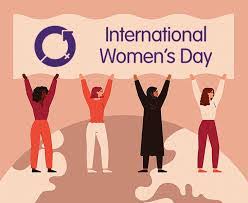As Nigerian women join the rest of the world to mark this year’s International Women’s Day ( IWD), Stakeholders in the sector have called for sustainable gender equality for women.
They also agreed that economic empowerment for women through what they called Rural Resilience Activity, would address issues of gender equality, food scarcity and acute hunger in Nigeria, particularly the insurgence ravaged Northeast.
They adduced that women in the N/E region were still under the cloak of rape, domestic violence and socio-economic deprivation despite interventions by concerned organisations in the past.The position was taken on Monday in Abuja during a Media for Women Economic Empowerment Roundtable, organised by Mercy Corps with the theme: Gender Equality today for a Sustainable Tomorrow, with harsh tag: #BreaktheBias.
The stakeholders said that the humanitarian intervention, supported by the United States Agency for International Development (USAID) under the initiative: The US Global Hunger & Food Security Initiative, was designed to help in breaking the gender biases that limit Women’s development in all facets of life.
The Chief of Party, Rural Resilience Activity, Margarita Aswani said the program implemented by Mercy Corps in partnership with the International Fertilizer Development Center and Save the Children, works primarily in Borno, Yobe, Adamawa and Gombe states, and had restored means of livelihoods to several vulnerable women in those states.
“More than 60 Farmers Field Schools for women were established across the North East, with community support and very little funding from us, and today more than 1,800 women farmers have accessed knowledge, and have spread the information in their communities”, she added.
In her presentation, one of the resource persons and broadcast Journalist, Atinuke Tokura-Nukay said there was need for the media to give special attention to highlighting the challenges of vulnerable groups in the Northeast region of the country.
her, women constitute a large population of farmers in the troubled communities of N/E region and as such require opportunities for all-round empowerment.
She called for stronger collaboration among relevant stakeholders to eliminate all forms of cultural and religious restrictions that inhibit women development.
” Changes within food systems open windows of opportunity for agripreneurship — that is, entrepreneurship in the agriculture sector — both on the farm and beyond the farm gate.
” But due to restrictive cultural norms, discrimination, and legal barriers, rural women around the world often don’t have equal access to essential services that could otherwise pave their way towards employment and agripreneurship,” said the broadcaster.


